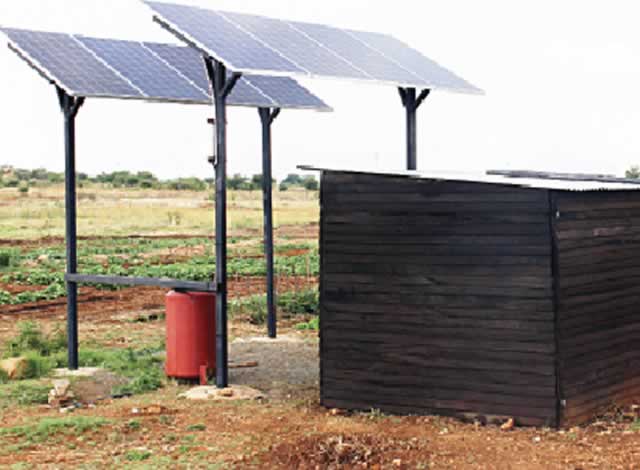2016 Budget: Divergent optimism for SMEs
Prosper Ndlovu Business Editor
LIKE it or not, small to medium enterprises and cooperatives are the new economy in Zimbabwe.
Presenting the $4 billion budget last Thursday, Finance and Economic Development Minister Patrick Chinamasa acknowledged that fact, recognising that small-to-medium enterprises were increasingly playing a key role in the economy.
He noted that the sector employed about 60 percent of the country’s workforce and contributed about 50 percent of Zimbabwe’s Gross Domestic Product (GDP).
However, a majority of SMES in Zimbabwe remain informal, with little direct contribution to the fiscus.
Given reduced banking confidence since dollarisation in 2009, estimates indicate up to $5 billion could be circulating in the informal economy in a country in dire need of liquidity.
To tap into this expanding sector, Minister Chinamasa last week unveiled a raft of measures aimed at unlocking SMEs’ potential for business growth.
“The government will be paying close attention to this sector with support on resolving the perennial challenges such as financing, infrastructure, technology, management and entrepreneurial skills as well as marketing,” said the minister.
In line with this goal, he pledged government commitment in the provision of support for the setting up of SMEs industrial parks, a modern approach to formalising the sector.
He vowed to prioritise capitalisation of the SME bank, entrepreneurial skills upgrading, promoting market access through business to business linkages and trade promotion, cooperatives development, promotion of value chains and development of the SMEs’ formalisation strategy.
The minister said progress has been made by the Zimbabwe Stock Exchange in developing a regulatory framework and other supporting structures to embrace the SME market, which would be finalised in the first half of 2016.
Notwithstanding resource constraints, Minister Chinamasa said the 2016 budget prioritises women empowerment projects and programmes.
This is in line with the fact that 52 percent of Zimbabwe’s total population are women, as well as the need for gender mainstreaming in budgets.
“The budget thrust is on carrying forward the various women empowerment projects and programmes in line with the above requirement as well as the Zim-Asset objectives on value addition and poverty eradication,” said Minister Chinamasa.
These would cover areas such as small grain production, tourism, trade, food processing, horticulture production, animal husbandry (cattle, beef, goats, chicken and beekeeping), mining and so forth.
The minister said a Women’s Micro-Finance Bank would be set up to speed up the empowerment process.
He also allocated $5 million to advance implementation of the new bank, whose designs are already in place through KPMG facilitation.
Bulawayo Vendors and Traders’ Association (BVTA) coordinator, Thabang Nare, believes the proposed fiscal measures are progressive, although more still needs to be done.
“We’re happy with provisions made in the budget for the informal economy,” he told the Business Chronicle.
“The $5 million allocation for the Women’s Bank is progressive. The major thinking for us is access to finance and markets as well as infrastructure like vending bays.”
He added: “Our members need skills, working capital and markets. We feel this bank is key to financing small businesses and promoting the culture of saving.”
Nare said scores of SMEs associations who are running small savings clubs could be easily regularised through the setting up of a SMEs bank.
“Micro-credit is a good tool the world over for boosting small businesses,” Nare added. “Such a bank would also easily attract private sector financing.
“We, however, feel Chinamasa should have set aside a grant to local authorities towards building proper infrastructure for the informal economy.”
Nare said proposals for the establishment of SMEs industrial parks, incubation centres and a secondary stock exchange were major milestones that needed to be urgently operationalised.
Economic analyst Reginald Shoko says while the budget statement is biased towards attracting foreign direct investment for manufacturing industry, agriculture and mining, it offers a broader scope for SME growth.
“The budget doesn’t offer a direct model for SMEs but there are a number of windows for the benefit of the informal economy. Issues of industry retooling, support for small holder farmers, tax reduction for mining and exemption of duty on equipment imports would assist SMEs,” he said.
Shoko said the broader budget proposals were satisfactory in terms of direction for the country’s economy. To him the challenge is now on SMEs to fit themselves within that framework and tap opportunities offered.
“In terms of figures $4bn is nothing for a country like ours. But what we need to know is that the fiscal policy offers direction and different players, including SMEs, should look at how to exploit opportunities within that framework,” he said.
Zimbabwe Chamber of Small and Medium Enterprises president, Daniel Chinyemba, is of the view the fiscal policy should tackle the issue of “acceptable” collateral and stringent lending conditions by banks.
To him, “poor financing” models by banks, finance institutions, and even NGOs, remain a stumbling block.
“Most banking products are designed to address their own fears and profit motive, hence the insistence on collateral and other ‘stringent requirements’ like audited accounts, financial projections, professionally-done business plans,” he said.
“SMEs and cooperatives constitute the largest depositors but never get assistance from the banks. Transaction fees and service charges are extremely high, thereby deterring SMES from banking.”







Comments